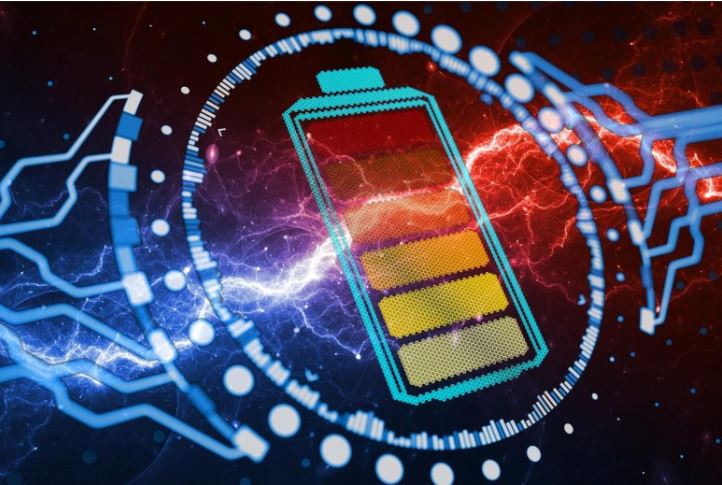


 10:43:29
10:43:29  2025-06-18
2025-06-18  1224
1224

DGIST scientists created the first practical next-gen betavoltaic cell using carbon-14 and perovskite.
Scientists have achieved a major breakthrough by creating the world’s first next-generation betavoltaic cell. This advanced power source was made by directly connecting a radioactive isotope electrode to a perovskite absorber layer, a cutting-edge material known for its efficiency
To boost performance, the team embedded carbon-14-based quantum dots into the electrode and improved the structure of the perovskite layer. These innovations led to a highly stable power output and impressive energy conversion efficiency.
The findings were published in the journal Chemical Communications and led by Professor Su-Il In of the Department of Energy Science & Engineering at DGIST (President Kunwoo Lee).
The newly developed technology offers a stable, long-term power supply without the need for recharging, making it a promising next-generation energy solution for fields requiring long-term power autonomy, such as space exploration, implantable medical devices, and military applications.
As the miniaturization and precision of electronic devices rapidly accelerate, demand is growing for innovative power supply technologies that minimize the need for frequent charging. However, current mainstream batteries, including lithium- and nickel-based types, suffer from short lifespans and vulnerability to heat and moisture, limiting their reliability in extreme environments. Betavoltaic cell technology, capable of delivering stable power for years or even decades, is emerging as a strong alternative.
Betavoltaic Cells: Long-Term, Safe, and Underutilized
Betavoltaic cells generate electricity by capturing beta particles emitted during the natural radioactive decay. In theory, they can operate for decades without maintenance. Beta particles also present excellent biological safety advantages, as they cannot penetrate human skin. Nevertheless, practical progress has been limited due to the challenges of handling radioactive materials and ensuring material stability.
To overcome these challenges, Professor In’s team developed a hybrid quantum betavoltaic cell by combining a carbon-14-based isotope electrode with a highly efficient perovskite absorber layer. They dramatically improved the charge transport properties by precisely controlling the perovskite crystal structure, using additives such as methylammonium chloride (MACl) and cesium chloride (CsCl).
As a result, the developed betavoltaic cell achieved approximately a 56,000-fold increase in electron mobility compared to conventional systems. It maintained stable power output for up to nine hours of continuous operation, demonstrating outstanding performance.
Professor Su-Il In commented, “This research marks the world’s first demonstration of the practical viability of betavoltaic cells. We plan to accelerate the commercialization of next-generation power supply technologies for extreme environments and pursue further miniaturization and technology transfer.” Doctoral student Junho Lee, a co-first author, added, “Although this research involves daily challenges that often seem impossible, we are driven by a strong sense of mission, knowing that the future of our nation is closely tied to energy security.”
Reality Of Islam |
|

A newly dev

Get ready f

Researchers

A new metas
 9:3:43
9:3:43
 2018-11-05
2018-11-05
10 benefits of Marriage in Islam
 7:5:22
7:5:22
 2019-04-08
2019-04-08
benefits of reciting surat yunus, hud &
 9:45:7
9:45:7
 2018-12-24
2018-12-24
advantages & disadvantages of divorce
 11:35:12
11:35:12
 2018-06-10
2018-06-10
 6:0:51
6:0:51
 2018-10-16
2018-10-16
 9:42:16
9:42:16
 2022-10-19
2022-10-19
 12:47:1
12:47:1
 2022-12-20
2022-12-20
 4:25:57
4:25:57
 2023-02-11
2023-02-11
 1:16:44
1:16:44
 2018-05-14
2018-05-14
 3:43:50
3:43:50
 2022-11-05
2022-11-05
 2:42:26
2:42:26
 2023-02-02
2023-02-02
 6:14:17
6:14:17
 2018-06-21
2018-06-21
 5:41:46
5:41:46
 2023-03-18
2023-03-18
| LATEST |